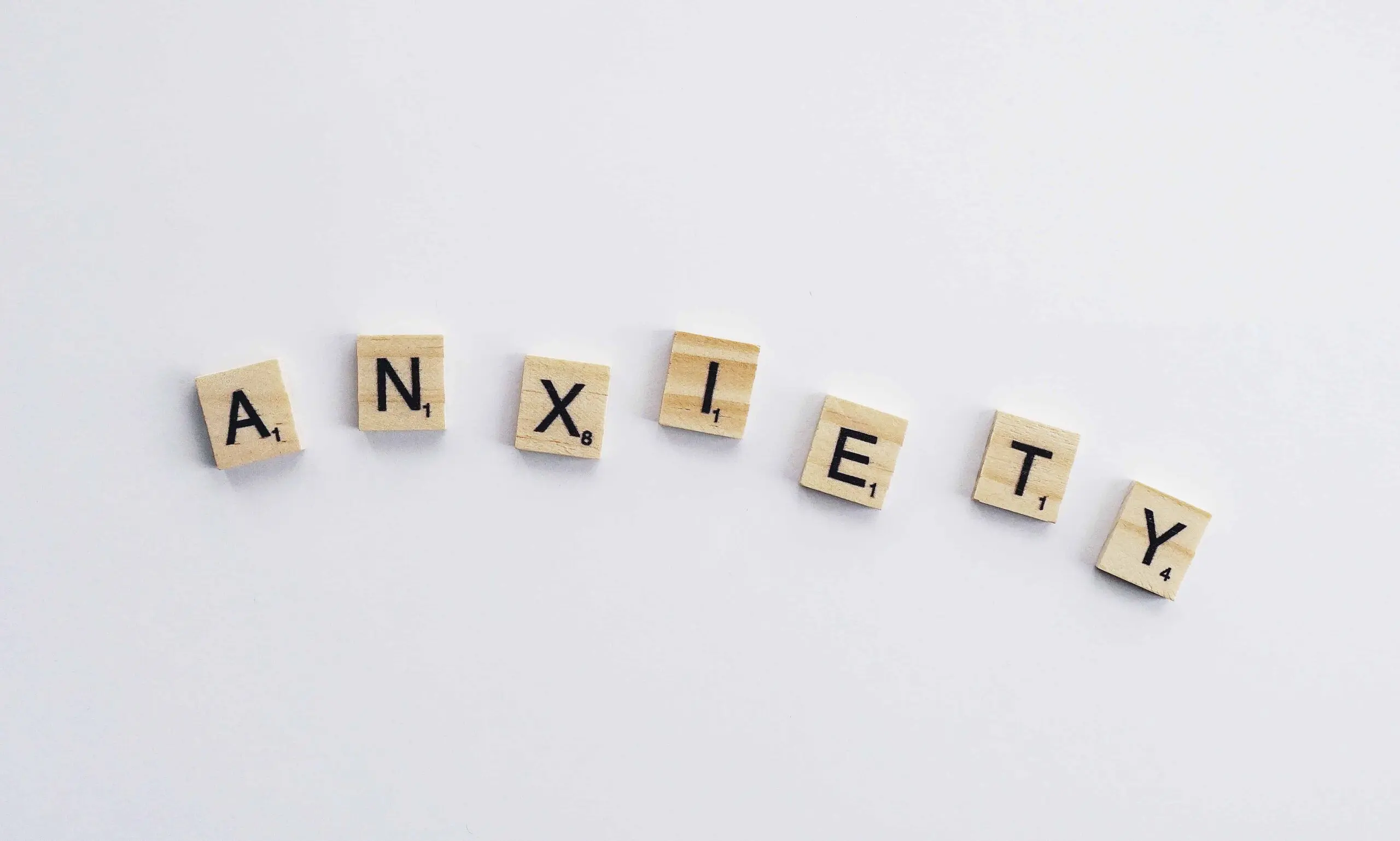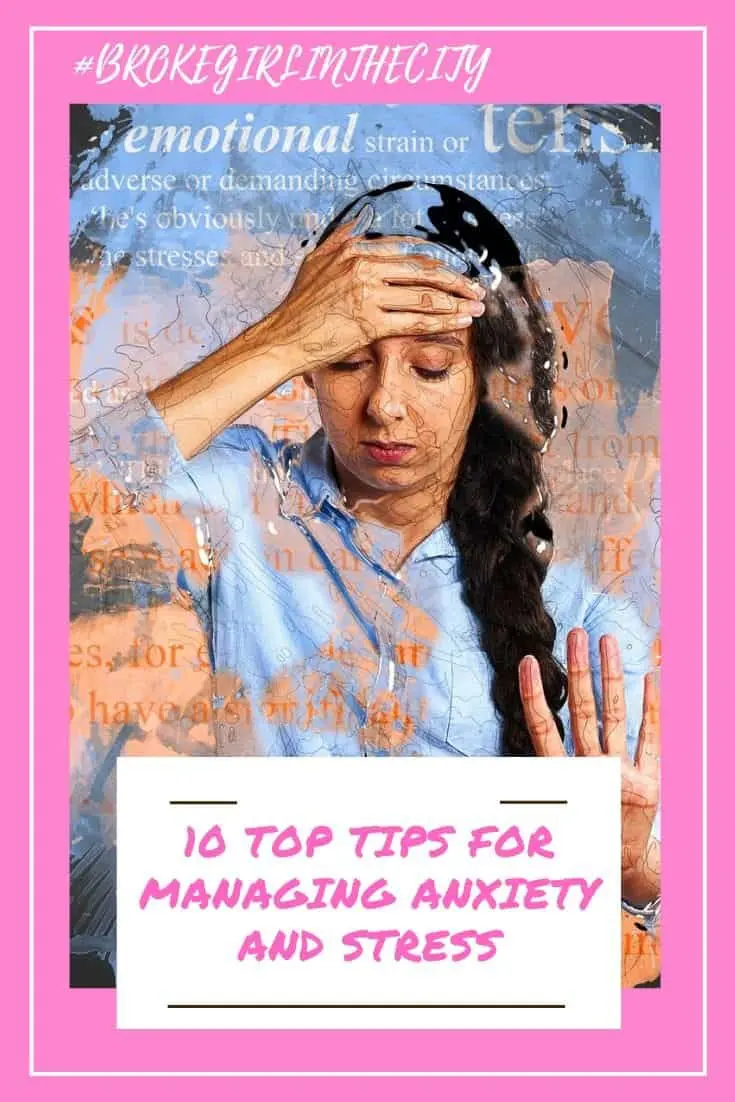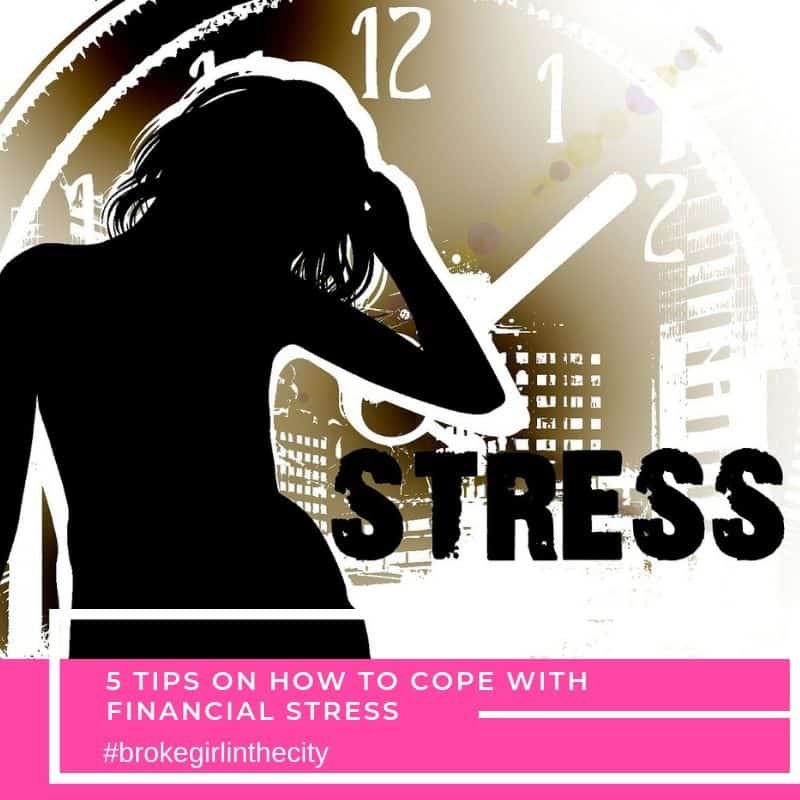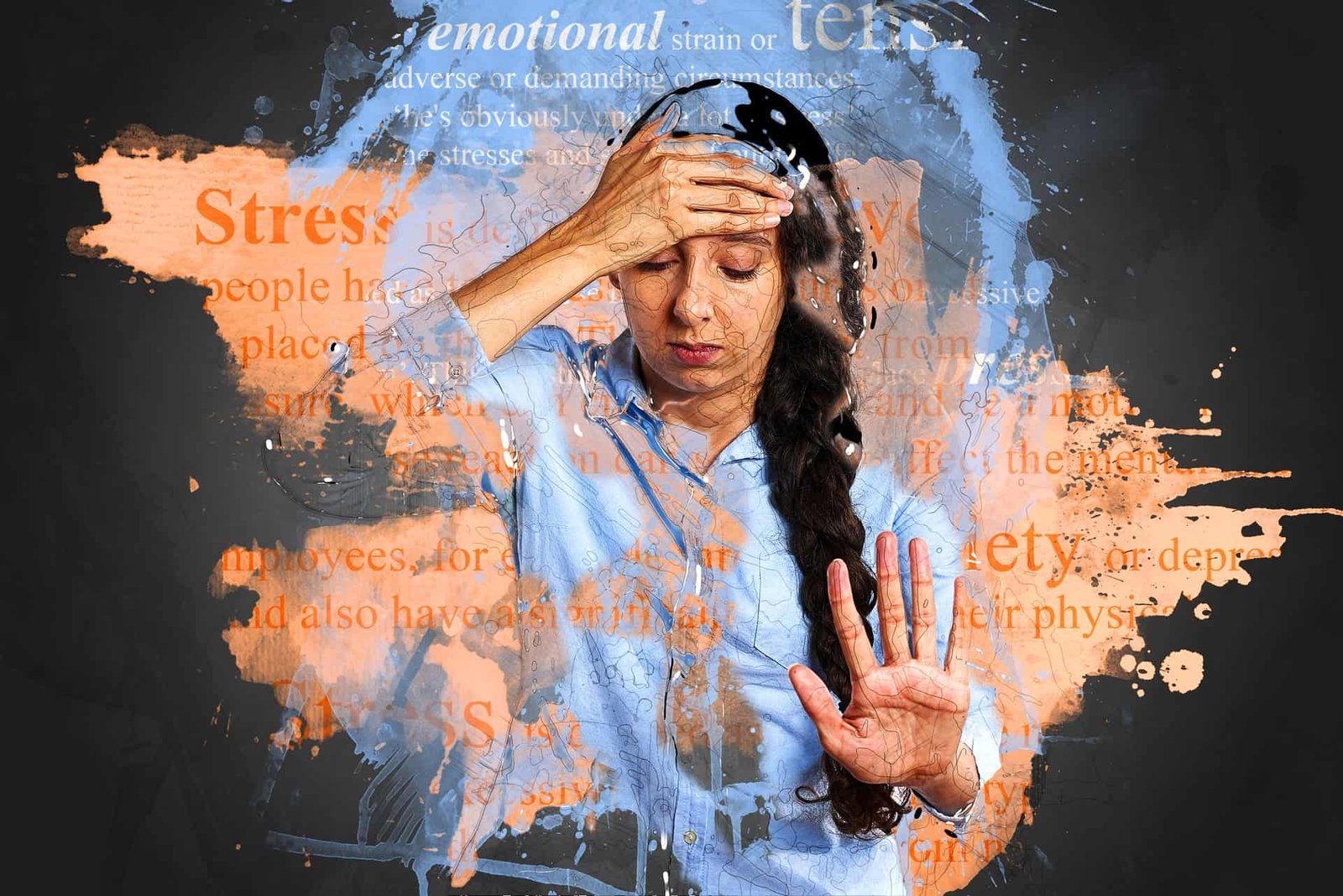
Coronavirus and your Mental Health – Coping with Anxiety and Stress
My anxiety has skyrocketed this past week due to the escalating news about the Coronavirus pandemic. I have asthma, which means that I am in a high-risk group. One of those people would make up the statistic of those dying with an underlying health condition. We are living in scary times. Ever since the start of 2020, we have been hit with news of devastation: floods, locusts, fires, and climate change on a global scale. Brexit on a national level. The Coronavirus, which has had devastating consequences in other countries, is now taking its toll here in the UK, without readily available testing and being told to stay home and self-isolate if symptoms arise. Many of us are struggling with anxiety and stress.

10 Top Tips for Managing Anxiety and Stress
It’s important to recognise the symptoms of anxiety and stress, so you can work out how best to manage them. I started to struggle with my asthma this week but realised after a few days it was anxiety. When you feel you have no control over the world and are being bombarded with media messages saying you might not have long left. I think we all feel some degree of stress and anxiety, whatever your health situation or those loved ones around you.
1. Be kind to yourself
Anxiety and stress may feel very overwhelming at times. My breathing has become more laboured in days. My sleeping has been adversely affected. This is the time when you need to be kind to yourself.
Recognise that you are feeling overwhelmed by all the negativity in the news and that this is impacting your life. You may have an underlying health issue like me, which we are told puts us at higher risk should we catch this virus. You may also be affected by a lack of work and money, which will then exacerbate stress. Be kind to yourself right now. Take advice which is being given and minimise risks. Rest if you need to. Self-isolate if you are feeling unwell.
2. Self-care is a priority
Looking after yourself is your number one priority. Even if you have people dependent on you, you can’t pour from an empty cup or look after other people if you are unwell, whether it’s reading a book in a bath or pampering yourself in some other way, with the demands of our everyday lives. It’s time to go back to basics. Sleep, eat, drink (water), and rest. Eliminate everything else.
3. Sleep is increasingly important
When I suffer from anxiety or stress, my sleep is the first thing that suffers. Insomnia affects so many of us. If you ever can’t sleep and go on to Twitter (bad move!), most often, you will see #insomnia trending. If you suffer from Insomnia, there are many ways to combat it. I have just re-discovered chamomile tea, which is really soothing when unable to sleep.
4. Make a health action plan
If you have an underlying health problem – mine is asthma – then make sure you are taking your medications. All asthmatics should have their very own action plan agreed with their doctor. I know to take more of my steroid medication if my asthma starts to worsen. A spacer is really helpful, which acts as a mini nebuliser if you are looking after your asthma at home. However, in the event of an actual attack, I need to get to a hospital to be nebulised. Understand your illness and learn how to monitor your symptoms and health. Make sure that you agree to a health action plan with your doctor or health specialist.
5. Eat a nutritious diet and drink lots of water
It doesn’t come naturally to drink lots of water as well as eat well. Cooking for myself seems such a chore. However, both are really important right now. I have recently been tested for any vitamin deficiencies and was only lacking in Vitamin D, which means I need more sun, as do most people in the UK! Make sure you try to plan nutritious meals. Try not to drink lots of alcohol right now, as this will only exacerbate anxiety. Take supplementary vitamins if you need to boost your immune system.
Top tip: I have recently rediscovered chamomile tea. I always get an upset tummy when I am really anxious. This seems to be the one thing that helps to soothe it.
6. Minimise exposure to crowds
Commuting in and out of the city, or even shopping, means that we are all in close proximity to people wherever we go. However, we can minimise our exposure to crowds where possible. The government will introduce more drastic measures over the next few weeks, dependent on the spread of the virus. Many companies have been taking responsibility, allowing people to work from home, cancelling/postponing events or even temporarily closing down like the Ministry of Sound. Of course, wash your hands wherever you go, especially when you first come home!
7. Reduce your media intake
I have been watching the news all week. In between, I have been seeking out updates online or on Twitter. It’s important that we keep ourselves informed about what is going on. Yet my lesson from this week has been that I had to take a step away when it was affecting my anxiety. Keep updated but reduce your media intake to alleviate your anxiety and stress if needed.
I always try to look for positivity and quotes to get through the week. When things feel like they are getting too much, take a step away from your computer, phone or TV for a few hours. Listen to some music, phone a friend or even have a bubble bath. Whatever works for you.
8. Ask people for support
If you are feeling anxious or stressed. Reach out to your friends and family for support. Most people are feeling the same as you. I was speaking to the lovely Forever Amber on Instagram about my feelings of anxiety from the Coronavirus. Not just about me, but about loved ones too. Keep checking in on people and ask for support if you are anxious or stressed.
9. Breathing and exercise
Whether you are a gym bunny or are more reluctant to do any exercise (like me!). Keeping moving is also important. Try to find a mode of exercise you can do at home. You can book a virtual Yoga class like this with Nic, who runs Stretch Appeal. You can alternatively look for dance classes on YouTube or go for a walk if you are not self-isolating. The NHS also offers guidance on breathing for stress, which is important for alleviating any symptoms.

10. Anxious and stressed about money?
Many of my friends are comedians, DJs, working in bars, or self-employed. Even if you are in full-time employment, you might worry about how you will manage should you be off sick.
Money is a massive concern for many people right now and is a huge source of stress. My top tip is to keep your spending low right now and ensure you know your rights regarding sick pay. If you have built up an emergency fund, that’s amazing. However, many of us don’t have that luxury.
SSP (Statutory Sick Pay) is available if you need to go on sick, which is £94.25 per week. The government have agreed to help small businesses (those with less than 250 employees). Anyone who needs to self-isolate with no income can apply for Universal Credit, which you can do online rather than apply in person. You may be eligible for help with your housing costs too.
Many companies will have their own sick policy. Many of you are now working from home, but it is still worth asking what your company’s policy is in the eventuality you are too poorly to work or you have to self-isolate. If you are in a job that means you can’t work from home, ensure your company keeps you updated on their policies.
Use this time to do something you love
Whether you are self-isolating or staying in to minimise your interactions with people, use this time to do something you love. I am going to spend time blogging. I will also get around to all those little jobs I haven’t done in ages. Use this extra time to do something you love.

Other UK Money Blogger Articles of Interest:
UK Money Blogger Andy Webb from Be Clever with your cash has written a brilliant article on the latest budget.
Debt Camel has also written a great article on Coronavirus – if your income drops how can you pay your debts?
